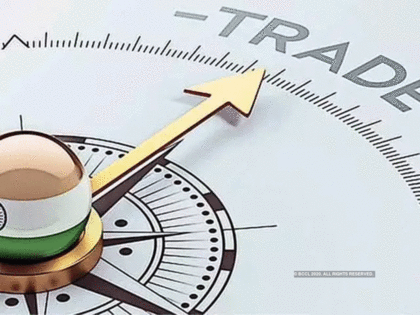
Negotiators adopted Cisco's Webex platform for video-calling and text-editing text. According to three negotiators I spoke to, easy editing of text during online meets - use of red colours and brackets to leave out contentious issues for a future date - helped expedite the process in a big way. Small wonder that virtual meetings, equipped with tech tools and without long bureaucratic procedures, offered results much faster than in-person negotiations.
Between November 2021 and February 2022, there were six rounds of talks with the UAE, out of which three were conducted in the physical format, the rest in virtual mode. And then, in a face-to-face meeting, if a critical negotiator failed to turn up, there was no need for any postponement, as the person could still join it via a video call.
In the case of negotiations with Australia, almost all important decisions were taken virtually, with only two rounds of meetings being held physically in New Delhi and in Canberra. In the run-up to the Economic Cooperation and Trade Agreement (ECTA) with Australia, eight groups were formed to handle subjects such as trade in goods, rules of origin, trade in services, technical barriers to trade, etc. Heads of each group from both the countries - 'track leaders' - were given total freedom to choose the date and timing for such virtual meetings, thereby ending the very concept of negotiation 'round'.
India's first attempt to ink an FTA with Australia began in 2011. But after four years and nine rounds of negotiations, the process was abandoned, as both countries were already part of the Regional Comprehensive Economic Partnership (RCEP) talks that aimed at inking an FTA among 16 Asia-Pacific nations. India, however, pulled out of the RCEP negotiations in 2019.
So, how did India and Australia clinch the deal in 185 days of almost total virtual negotiations, when they had failed to make any headway after nine rounds of talks in 2011-2015? The answer is simple. A physical round of negotiations would have meant 25-30 officers flying to Canberra, checking into a hotel, and then attending 9 to 5 meetings for five consecutive days. They would have then returned to India, waited for a month or so for their Australian counterparts to reach New Delhi. Virtual sessions did away with logistical bottlenecks.
In the virtual format, group leaders decide when to talk; Indian negotiators, for example, held some sessions late at night to accommodate the 4.5 hours of time difference with Canberra. In a first, Indian negotiators also held industry consultations - some 200 meetings ahead of the Australia pact - via video calls, thereby saving both time and resources. In the pre-Covid era, commerce ministry officials would hop from one city to another to collect feedback from industry associations.
With the pandemic waning and international travel returning, will GoI revert to physical-only mode of negotiations, jettisoning the virtual and hybrid format? That would clearly be retrogressive.
(Catch all the Business News, Breaking News, Budget 2024 Events and Latest News Updates on The Economic Times.)
Subscribe to The Economic Times Prime and read the ET ePaper online.
Read More News on
(Catch all the Business News, Breaking News, Budget 2024 Events and Latest News Updates on The Economic Times.)
Subscribe to The Economic Times Prime and read the ET ePaper online.










 Get Unlimited Access to The Economic Times
Get Unlimited Access to The Economic Times
